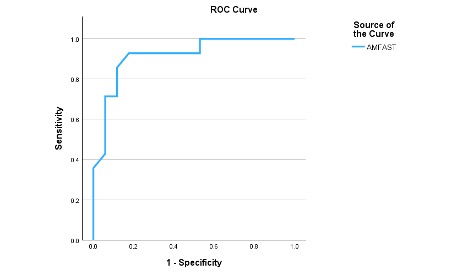Session Information
Date: Monday, October 27, 2025
Title: (1467–1516) Systemic Lupus Erythematosus – Diagnosis, Manifestations, & Outcomes Poster II
Session Type: Poster Session B
Session Time: 10:30AM-12:30PM
Background/Purpose: Up to 80% of Systemic Lupus Erythematosus (SLE) patients experience cognitive dysfunction (CD), which is a top distressing symptom affecting their quality of life.(1) This process is poorly understood and often a diagnostic challenge due to mild and nonspecific symptoms. The current gold-standard diagnostic tool, the comprehensive neuropsychological (CNP) testing, is time-consuming and requires specialized training. Other tests, such as the Automated Neuropsychological Assessment Metric (ANAM) or the Montreal Cognitive Assessment (MoCA), can be impractical in busy clinical settings or focus more on memory deficits that are less relevant than impairment in processing speed and executive function in young SLE patients. We propose using a novel tool, the Attention, Memory, and Frontal-Executive Abilities Screening Test (AMFAST), which is a 10-minute pen-and-paper test that has shown excellent sensitivity and specificity for neurologic pathologies within a large age range.(2) Our aim is to validate AMFAST as a bedside screening tool for detecting CD in adult SLE patients.
Methods: This IRB-approved longitudinal study assessed a cohort of 31 adult SLE patients from the Lupus Clinic at Montefiore Medical Center between 2023 and 2025. English-speaking patients with no pre-existing, non-SLE-related neurological conditions were recruited. Participants underwent AMFAST testing in the clinic, followed by a CNP battery evaluation administered by a blinded neuropsychologist within two weeks. Patients were then classified into two groups: those exhibiting CD, defined by scoring below one standard deviation (SD) on at least six of the 24 measures, and those without cognitive impairment (NCD).(3) A receiver operating characteristic (ROC) curve analysis was conducted to evaluate the correlation between AMFAST scores and CNP test battery performance.
Results: Participants had a mean age of 43 years (range 23-70) and were 93.5% female (Table 1). Based on the CNP battery tests, 14 out of 31 patients (45.2%) were classified as having CD. The mean score on the AMFAST test was 79.23 (SD = 18.1). ROC analysis demonstrated excellent diagnostic discrimination for the AMFAST test, with AUC of 0.92 (Figure 1). This indicates that AMFAST is highly effective in distinguishing between individuals with CD and NCD. AMFAST cutoff score of 83 had the best balance of sensitivity (93%) with specificity (82%), where overall, it was able to correctly classify 27 out of 31 cases (87.1%).(Table 2)
Conclusion: Our single-center findings confirm the robustness of AMFAST in screening SLE patients at risk of cognitive impairment. It is a simple bedside screening tool demonstrating promising results for identifying CD in SLE patients. The test’s ease of administration with high sensitivity and specificity makes it an attractive clinical tool for early identification of CD, enabling timely intervention. Although our study provides valuable insights, further research is warranted.Reference(1) Lupus Foundation of America: Patient Voices Report (2017)(2) Freilich BM, et al. Validation of AMFAST. Assessment (2020)(3) Freilich BM, et al. Validation of AMFAST in children, adolescents, and young adults. Child Neurops (2023)
 Figure 1: Receiver operating characteristic (ROC) of AMFAST test
Figure 1: Receiver operating characteristic (ROC) of AMFAST test
.jpg) Table 1: Baseline demographics
Table 1: Baseline demographics
.jpg) Table 2: AMFAST Score with sensitivity and specificity based on different cut-off. In grey, the best cutoff
Table 2: AMFAST Score with sensitivity and specificity based on different cut-off. In grey, the best cutoff
To cite this abstract in AMA style:
Chao C, Thomas G, O’Brien C, Chen D, Mian S, Rubinstein T, Schwartz N, Freilich B. Validation of Attention, Memory, and Frontal-Executive Abilities Screening Test (AMFAST) in Systemic Lupus Erythematosus (SLE), a prospective single-center study in The Bronx [abstract]. Arthritis Rheumatol. 2025; 77 (suppl 9). https://acrabstracts.org/abstract/validation-of-attention-memory-and-frontal-executive-abilities-screening-test-amfast-in-systemic-lupus-erythematosus-sle-a-prospective-single-center-study-in-the-bronx/. Accessed .« Back to ACR Convergence 2025
ACR Meeting Abstracts - https://acrabstracts.org/abstract/validation-of-attention-memory-and-frontal-executive-abilities-screening-test-amfast-in-systemic-lupus-erythematosus-sle-a-prospective-single-center-study-in-the-bronx/
